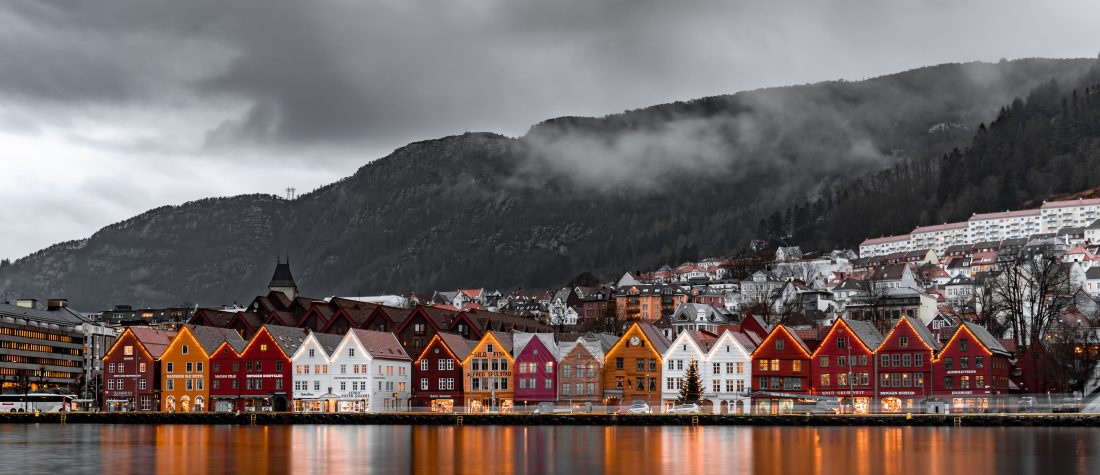The likelihood of Boris Johnson being able to strike a far-reaching new global climate deal at the Cop26 meeting in Glasgow has been dealt a fresh blow by the collapse of a little-known climate finance agreement.
Just recently, Indonesia’s Foreign Ministry announced that it was cancelling a decade-long agreement with Norway known as REDD, under which Indonesia would receive payments for reducing deforestation rates.
According to Jakarta, Norway was delaying payments that were agreed by both parties after Indonesia posted its lowest deforestation rates on record.
Norway’s obstinance – and Indonesia’s response – have profound implications for climate diplomacy and for the conference in Glasgow. Success depends on rich, Western countries (such as Norway) and poorer developing countries (such as Indonesia) finding common cause and striking a common deal together. That Norway now stands accused of breaking its climate promises will deepen suspicion amongst countries in the Global South that the West is big on climate talk, but not so big when action – or hard cash – is required.
When Indonesia and Norway signed their agreement in 2010, reducing emissions was a higher priority for wealthy countries; poor countries were simply more concerned with alleviating poverty and raising living standards.
It was well understood that a ‘low carbon transition’ for poor and even middle income countries could not happen without the rich world effectively compensating poor countries. This included the idea of ‘technological transfer’, which is assisting poorer countries gain access to high cost, low emissions technologies.
For forested countries like Indonesia and Brazil with high deforestation rates, reducing emissions from deforestation and forest degradation (known in climate jargon as REDD) was a clear path.
But there was a significant opportunity cost. Locking up forests meant no more land for agriculture, both small and large scale. This was particularly acute for Indonesia and its palm oil sector. Analyses indicated that the financial returns for palm oil plantations were around ten times anything that could be offered by a carbon pricing system.
Norway promised cash payments to both Indonesia and Brazil for improving their performance on deforestation. Indonesia was prepared to take leadership on the issue. It signed the agreement with Norway to considerable fanfare in 2010; the agreement was that Norway would pay $1billion to Indonesia in instalments, as deforestation was reduced.
The first step was the introduction of a forest moratorium in 2011, which ring fenced primary forests, peatlands and other areas from development. The moratorium has since been extended and made permanent.
Following that moratorium came another, separate one, which put a halt to palm oil development. A national mandatory sustainability certification standard was developed for palm oil. Indonesia has also fundamentally reformed many parts of its bureaucracy, including jurisdictional relations, spatial planning, business licensing and other processes. The result is the lowest level of deforestation in the country since records began. In other words, REDD is working.
Except that Norway has refused to keep its side of the bargain. The tranche – a relatively small payment of USD56 million – has been held up with Norway now changing the goalposts and making fresh demands. One Indonesian minister summed up the frustration stating: “We were wasting our time.”
Norway’s move – and Indonesia’s response – will have significant implications for the Cop26 meeting in Glasgow and for the future of climate diplomacy between rich and poor nations.
It is apparent that the climate finance promised by wealthy countries over the past decade has fallen short of the promises. This is leading to disillusionment and an understandable scepticism: why would we sign up to this again?
If the fragile climate coalition is not to fall apart in October, Boris Johnson and Alok Sharma, minister for Cop, need to reassure developing nations. First, acknowledge that a low-carbon transition is expensive for developing nations and help will be provided; and second, commit publicly that the rich world will commit to sustainable development beyond climate (addressing hunger, poverty, disease and jobs as well). Public criticism of Norway for letting the side down would help, as well.
This is a delicate balancing act. Norway’s retreat from its promises has made it harder for the West to gain the trust of the rest of the world when it comes to climate promises. All eyes are now on the prime minister and whether or not he can rebuild that trust in the next few short weeks.


